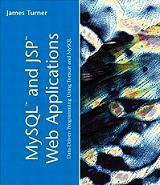Far too many programmers and software designers consider efficient C++ to be an oxymoron. They regard C++ as inherently slow and inappropriate for performancecritical applications. Consequently, C++ has had little success penetrating domains such as networking, operating system kernels, device drivers, and others.
Efficient C++ explodes that myth. Written by two authors with first-hand experience wringing the last ounce of performance from commercial C++ applications, this book demonstrates the potential of C++ to produce highly efficient programs. The book reveals practical, everyday object-oriented design principles and C++ coding techniques that can yield large performance improvements. It points out common pitfalls in both design and code that generate hidden operating costs.
This book focuses on combining C++'s power and flexibility with high performance and scalability, resulting in the best of both worlds. Specific topics include temporary objects, memory management, templates, inheritance, virtual functions, inlining, referencecounting, STL, and much more.
With this book, you will have a valuable compendium of the best performance techniques at your fingertips.

Table of Content
Table of Content i
Copyright. v
Dedication vi
Preface. vi
Introduction viii
Roots of Software Inefficiency. viii
Our Goal . xi
Software Efficiency: Does It Matter? xi
Terminology xii
Organization of This Book . xiii
Chapter 1. The Tracing War Story. 1
Our Initial Trace Implementation 2
Key Points . 7
Chapter 2. Constructors and Destructors. 9
Inheritance 9
Composition 18
Lazy Construction 19
Redundant Construction . 21
Key Points . 25
Chapter 3. Virtual Functions . 26
Virtual Function Mechanics 26
Templates and Inheritance. 28
Key Points . 31
Chapter 4. The Return Value Optimization 32
The Mechanics of Return-by-Value. 32
The Return Value Optimization 33
Computational Constructors. 35
Key Points . 36
Chapter 5. Temporaries. 37
Object Definition. 37
Type Mismatch . 38
Pass by Value. 40
Return by Value 40
Eliminate Temporaries with op=(). 42
Key Points . 43
Chapter 6. Single-Threaded Memory Pooling 44
Version 0: The Global new() and delete(). 44
Version 1: Specialized Rational Memory Manager. 45
Version 2: Fixed-Size Object Memory Pool . 49
Version 3: Single-Threaded Variable-Size Memory Manager. 52
Key Points . 58
Chapter 7. Multithreaded Memory Pooling. 59
Version 4: Implementation 59
Version 5: Faster Locking. 61
Key Points . 64
Chapter 8. Inlining Basics . 66
What Is Inlining?. 66
Method Invocation Costs 69
Why Inline? . 72
Inlining Details 73
Inlining Virtual Methods. 73
Performance Gains from Inlining . 74
Key Points . 75
Chapter 9. Inlining-Performance Considerations 76
Cross-Call Optimization 76
Why Not Inline? 80
Development and Compile-Time Inlining Considerations 82
Profile-Based Inlining. 82
Inlining Rules 85
Key Points . 86
Chapter 10. Inlining Tricks 87
Conditional Inlining. 87
Selective Inlining 88
Recursive Inlining. 89
Inlining with Static Local Variables 92
Architectural Caveat: Multiple Register Sets . 94
Key Points . 94
Chapter 11. Standard Template Library . 96
Asymptotic Complexity 96
Insertion 96
Deletion. 103
Traversal 105
Find 106
Function Objects 108
Better than STL? 110
Key Points . 112
Chapter 12. Reference Counting . 113
Implementation Details 114
Preexisting Classes . 123
Concurrent Reference Counting 126
Key Points . 129
Chapter 13. Coding Optimizations. 131
Caching 132
Precompute. 133
Reduce Flexibility . 134
80-20 Rule: Speed Up the Common Path 134
Lazy Evaluation 137
Useless Computations 139
System Architecture. 140
Memory Management . 140
Library and System Calls 142
Compiler Optimization. 143
Key Points . 144
Chapter 14. Design Optimizations. 145
Design Flexibility 145
Caching 148
Efficient Data Structures . 150
Lazy Evaluation 151
Useless Computations 153
Obsolete Code 154
Key Points . 155
Chapter 15. Scalability. 156
The SMP Architecture . 158
Amdahl's Law 160
Multithreaded and Synchronization Terminology 161
Break Up a Task into Multiple Subtasks. 162
Cache Shared Data . 163
Share Nothing. 164
Partial Sharing 166
Lock Granularity . 167
False Sharing 169
Thundering Herd 170
Reader/Writer Locks 171
Key Points . 172
Chapter 16. System Architecture Dependencies 173
Memory Hierarchies. 173
Registers: Kings of Memory . 174
Disk and Memory Structures 177
Cache Effects . 179
Cache Thrash . 180
Avoid Branching . 181
Prefer Simple Calculations to Small Branches 182
Threading Effects . 183
Context Switching 184
Kernel Crossing 186
Threading Choices. 187
Key Points . 189
Bibliography
Бесплатно скачать электронную книгу в удобном формате, смотреть и читать:
Скачать книгу Efficient C++ Performance Programming Techniques - Dov Bulka, David Mayhew - fileskachat.com, быстрое и бесплатное скачивание.
Скачать pdf
Ниже можно купить эту книгу, если она есть в продаже, и похожие книги по лучшей цене со скидкой с доставкой по всей России.Купить книги
Скачать книгу Efficient C++ Performance Programming Techniques - Dov Bulka, David Mayhew - depositfiles
Скачать книгу Efficient C++ Performance Programming Techniques - Dov Bulka, David Mayhew - letitbit
Дата публикации:
Теги: программирование :: языки программирования :: C++ :: программирование на C++ :: самоучитель по C++ :: Bulka :: Mayhew :: programming techniques :: книга :: скачать
Смотрите также учебники, книги и учебные материалы:
Следующие учебники и книги:
Предыдущие статьи:










